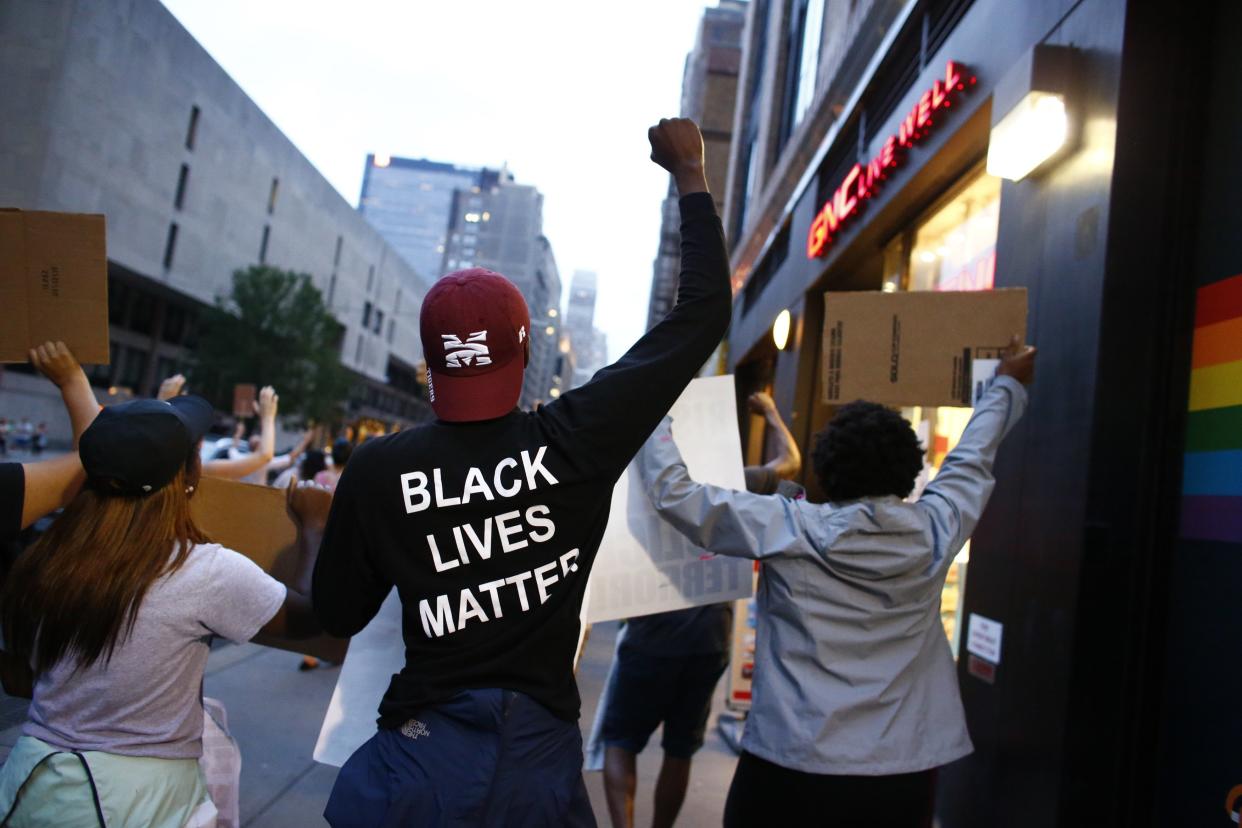Opinion: Don’t Mistake A Little Progress For Racial Equity

In the last week, it has become more clear that Black people cannot wait in a coffeeshop, ride a bus or shop at Walmart without becoming the victims of racialized discrimination, humiliation and violence. It is not safe to be a person of color in the United States, a country with such national amnesia that it cannot see these events for what they are: products of a systemically racist nation-state.
America desperately wants a fixed point where it can say that racism ended. During the Obama administration, people continually and proudly claimed that as a nation we had finally become post-racial. A Black president proved that racism had somehow died at the close of the presidency of George W. Bush (lol). Society readily says that Black celebrities have “transcended race” once they have reached a certain level of popularity and white people become comfortable fans (that is, until that celebrity decides to assert their blackness).
The visibility of successful black people amid racism is confused with the notion that racism has ended. We want to believe that a person of color can succeed because equity exists, not in spite of persistent discrimination. The success of prominent Black people in politics, music, entertainment, sports or any other public space has become the proof that progress is equivalent to racial equity.
It is reasonable, in a country full of horrific racialized violence, that we would wish to believe that the white supremacist ideologies that caused such trauma are as dead as the forefathers who cultivated them. However, the desperation to be post-racial, and thus morally abdicated from the blatant racism in the present, creates a paradoxical social climate. The ongoing oppression of people of color is treated as a series of anomalies perpetuated by individual racists rather than the product of racialized systems or as trite incidents compared to periods that we consider greater atrocities like the early slavery era or Jim Crow.
The overwhelming sentiment is essentially “racism died with slavery/Jim Crow/Obama, so when will people of color, Black people specifically, be satisfied?”
We can never be satisfied in a society that continues to incarcerate and extrajudicially kill people of color at disproportionately high rates. We can’t be satisfied as long hate crimes in the U.S. continue to rise, as long as Flint, Michigan, still lacks clean water or as long as people ignore the stories of micro- and macro-aggressions around the country. This is our “progressive” reality, one where the gravity of historic racism is so significant that it’s still pervasive in the everyday lives of people of color.
And historic racism has become the bar that present racism is measured against. Y’all. Slavery is a really low bar. The KKK is a really low bar. Segregation is a really low bar. Jim Crow is a really low bar. Because our history has a racism that relies on the explicit, violent action of shameless bigots, we are largely unable to see the covert and systemically embedded racism that continues to perpetuate inequity, dehumanization and marginalization.
Today, racism doesn’t need rely on individuals to perpetuate it when there are systems in place to make sure prejudice and discrimination persist.
While black people are not being lynched in the streets, we now experience disproportionate extrajudicial killings at the hands of the police. While Jim Crow has been outlawed, we still experience discriminatory banking and housing practices that keep people of color living in ghettos, barrios or substandard living environments. While we aren’t limited from voting by explicit violence, voter suppression tactics are well-documented to keep black people from the polls. While it is now culturally less acceptable to call people of color explicit racial slurs, the implicit belief in them creates new, coded slurs to replace them (thug, “you people,” ghetto, etc.).
The existence of covert white supremacy allows dominant culture to point to moments of progress as a way to write off the ways that racism still operates in the United States. But we seek equity and inclusion, not the illusion of equity masked by progress. Reaching equality is never about people of color being less problematic or integrating and getting along; it is about white people’s choice to see the benefits they receive from historically racist systems and to do something about it. This is not to say that progress happens because of white people. It is rather the courage, activism and advocacy of marginalized people that increases the temperature on society in such a way that those movements push the dominant culture and powers to yield.
Racial progress is not an end, it’s the means. Progress narratives are not meant to be excuses for white people to rectify their guilt. They are victories for people of color to claim and celebrate. But to truly move forward, we must confront our racist past, own its present implications and find ways to engage with our own complicitness in systemic oppression. We also must face our tendency as a broader culture to assume the role of the progressive hero, the one who gets it right, the one who has moved on, the “respectable” people of color who are unbothered by the subtleties of racism today.
When ideas of progress and fixed points that make us seem post-racial dominate race conversations, the natural result is a country divided along racial lines, with people of color attempting to articulate their oppression to a nation that can only recognize racism as lynchings and slavery. Progress for progress’ sake is not an end goal, it’s part of the journey toward true equity.
Brandi Miller is a campus minister and justice program director from the Pacific Northwest.
Love HuffPost? Become a founding member of HuffPost Plus today.
This article originally appeared on HuffPost.

